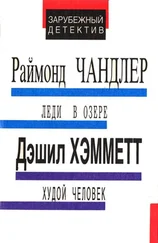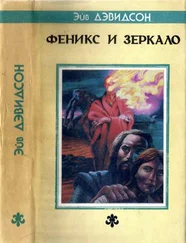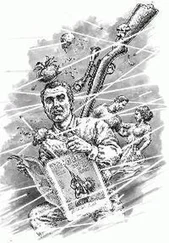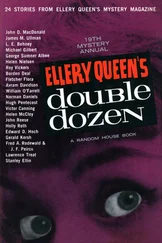Аврам Дэвидсон - Peregrine - primus
Здесь есть возможность читать онлайн «Аврам Дэвидсон - Peregrine - primus» весь текст электронной книги совершенно бесплатно (целиком полную версию без сокращений). В некоторых случаях можно слушать аудио, скачать через торрент в формате fb2 и присутствует краткое содержание. Год выпуска: 1971, ISBN: 1971, Издательство: New York : Walker, Жанр: sf_all, на английском языке. Описание произведения, (предисловие) а так же отзывы посетителей доступны на портале библиотеки ЛибКат.
- Название:Peregrine : primus
- Автор:
- Издательство:New York : Walker
- Жанр:
- Год:1971
- ISBN:0802755461
- Рейтинг книги:5 / 5. Голосов: 1
-
Избранное:Добавить в избранное
- Отзывы:
-
Ваша оценка:
- 100
- 1
- 2
- 3
- 4
- 5
Peregrine : primus: краткое содержание, описание и аннотация
Предлагаем к чтению аннотацию, описание, краткое содержание или предисловие (зависит от того, что написал сам автор книги «Peregrine : primus»). Если вы не нашли необходимую информацию о книге — напишите в комментариях, мы постараемся отыскать её.
Peregrine : primus — читать онлайн бесплатно полную книгу (весь текст) целиком
Ниже представлен текст книги, разбитый по страницам. Система сохранения места последней прочитанной страницы, позволяет с удобством читать онлайн бесплатно книгу «Peregrine : primus», без необходимости каждый раз заново искать на чём Вы остановились. Поставьте закладку, и сможете в любой момент перейти на страницу, на которой закончили чтение.
Интервал:
Закладка:
Peregrine pondered on these cryptic words, absentmindedly refilling the cup, taking the merest sip from it, and replacing it on the rustic table within reach of the lady’s hand, and then staring as it might have been through an invisible hole in the hovel wall some several inches above her head: and she watched him with a mixture of shrewdness and satisfaction, now and then delicately wiping her mouth upon her habit—for (as she had often reminded him) she had been reared and bred with the utmost delicacy in her native Celtland, where the art of delicate breeding was understood, appreciated, and exercised as nowhere else.
At length the lad gave a deep sigh, and said aloud, though clearly to himself, “Ah well, although one cannot escape one’s fate, much would one wish to love to get a line on what that fate might be, particularly if one is the youngest bastard son of the last pagan king in Lower Europe, Paladrine of Sapodilla; and hence cast upon the world with little enough, of course, if it enables one to rescue from the grossest barbarity a delicately reared daughter of the kings of Celtland; heigh ho!”
Reverend Mother Boadicea’s expression softened somewhat during this address, and she gave a sound not unlike a hiccough— to name no less refined form of eructation. “And what would yezz be givin’ to obtain that oracle?”
“I would give,” said Peregrine, in a faraway tone, “I would give the Crown of the Kings of the Ephts—”
The Chief Vestal Virgin gave a great start. “Ah, and the very mention of its name constitutes a Word of Great Power!” she
[ 36 ]
peregrine: primus
whispered. “Ye don’t mean to be sayin’ that ye have the—” and her voice died away and she looked at him in the dimlight with widened and reddened eyes.
“If you’ll show me yours,” said Peregrine softly, “I’ll show you mine—”
t f t t
“Hey, mastei,” said Claud, shoving him rather roughly. Nearby, a mule snored softly . . . softly, that is, for a mule.
“Whuzz?” inquired Peregrine. Through the chinks in the leanto he could see the deliquescent stars.
“Were you having a nightmare?”
“Whurmph .. .”
“You kept saying, ‘Burn the boards of beechwood with the baleful signs . . . .’—over and over— Burn the boards of beechwood with the baleful signs . . .’ What does that mean?”
From the other side of the lean-to came indications that even Appledore was engaged on some peradventures of his own on the other side of either the Gates of Horn or of Ivory. “Proclaimed!” he muffled through his beard and blanket. “Proclaimed is Appledore the First, Phallus Invictus! —Wench, come here!”
Claud hastily rose him up on his elbow and peered about in the darkness, but nary wench could he see. Muttering, he gave his master another nudge. And the latter said, crisply, “Phmrr!” and rolled over on his belly. With this had the former daftylad perforce to be content.
t t t t
They left early the next morning, with the blessings of at least two of the Vestal Virgins ringing in their ears. Appledore, who felt the cold and chill, wet mists, coughed and blew his nose and hawked his phlegm. Claud sat huddled and silent.Peregrine saw in his mind's eye the mysterious and oracular words, Burn the
AVRAM DAVIDSON
[ 37 ]
boards of beechwood with the baleful signs —a phrase concerning which the impromptu prophetess, Mother Boadicea, had professed herself as baffled as himself. “But sure,” she said, comfortingly, “It wouldn’t be an oracle if ’twere couched in simple words which any ploughboy could ken straight off. Depend upon it, me son, whin the time comes, yez’ll be understandin' of it well enough.”
“Be quiet,” said Claud, of a sudden, though no one had spoken. “Stop, stop—” they reined in. There was no sound save the perpetual drip of the mists and dew as they distilled on leaf and twig of tree and shrub, and fell to the ground.
After a few moments, Peregrine asked, low, “What, Claudy?”
“Thought I heard ... a horn? . ..”
“Perhap was the horns of Elfland,” suggested the old sage, half-wry. At that moment a horn sounded, and not too very far off in the thick greyness which moved and crept all about them. Appledore sat open-mouthed. “Chronos and Old Night!” he muttered. There was the drumming of hoofbeats, nearer and nearer. Peregrine spurred his mule up off the path, for he dared not trust to go down; and his two companions followed suit.
Hoofbeats, the cries of wild beasts, the sounds of horns and of voices, nearer and nearer and—seemingly—from high up—
Said Appledore, “I hope tis not—”
Said Claud, “Oh, tis not, I hope, the—”
“—Wild Hunt, I hope not—” said Perry.
Out of the morning mists, which lay so heavy on the ground and cloaked the trees and muffled the hills and vales, there came plunging three huge wisants and an even huger aurochs, heads all flung back and nostrils distended, tongues lolling and foam flying, flanks heaving—from some one of them a gout of blood splashed hot upon Peregrine.
Came men mounted upon horseback, the first with face muffled in cloak out of which there thrust a horn which he wound again and again, and after him three more: one with bow in hand and arrow nocked, and two with lances couched. The hornsman sped right on with his tru-ru-ru, perhaps he saw them not; the others slowed and turned dark faces as they flashed by, raised arms and fists—
“Immanueir halloo’d one.
“Dulkarnahyeen!” bellowed the second.
“Essus!” shouted the third.
And were gone, for one instant as though they had never been, then from the mists below, following the steep path, came the echoing hoofbeats, the sounds of the horn, the repeated bellowing of the fleeing beasts, and the recurrent shouts of the men.
If men they were, thought Peregrine. Yet said aloud at once, “Save there be new gods in the heavens, this is no wild hunt of theirs—”
“And besides,” Claud declared, suddenly brave and forgetful of his prior words, “whoever heard of the Wild Hunt in the daytime?”
“Appledore? Appledore? —Confound that wizard, has he
A small rain of falling stones heralded the descent of Appledore, as well as a stream of explanation and apology: The ass would flee, there was no stopping him, he and his master together would surely have been run down and trampled, “Who can hold, my friends, what will away?” and so forth and so on.
Peregrine, interrupting: “Is not Dulkarnahyeen a name for Alexander?”
Appledore, relieved to be on familiar ground: “It is, it is, my Per! And ’t means, Of the Twain Horns. For so were he ever named since being proclaimed the son of Ram-Head Ammon—” He stopped, slightly perplexed, turned his wizard-hat round a few times as though by so doing he could screw an answer out of his puzzled pate. “As for Essus, why, hmm, hmm, let me see, surely we have here another exemplum of horns signifying power, for . . . mmm . . . mmm . . . Alexander: Eskander (as the Syrians call him): Eskanderus: Es’k’us: Essus?. . . Eh? . . .” He scanned their faces, his own falling. “No, no,” he said. “ ‘Twill not do, the fetch is too long, by far, and it will not reach, not even Antonius the wordsmith can stretch it far enough to make it fit. Yet, Essus is a horned god, one of the older sort, the true sort, no doubt that Mother Boadicea could tell us something of him, for he is paid honor and faith by the shepherds of the great Isle of Briton—though whether those same shepherds be Celts or Saxo-Angles, I cannot say.”
Peregrine shook his head, as though to dislodge a buzz or an earwig, syllables and hoots of horns, horns and echoes . . . “Nay, but one more, wise Appledore. What of Immanuel?”
Читать дальшеИнтервал:
Закладка:
Похожие книги на «Peregrine : primus»
Представляем Вашему вниманию похожие книги на «Peregrine : primus» списком для выбора. Мы отобрали схожую по названию и смыслу литературу в надежде предоставить читателям больше вариантов отыскать новые, интересные, ещё непрочитанные произведения.
Обсуждение, отзывы о книге «Peregrine : primus» и просто собственные мнения читателей. Оставьте ваши комментарии, напишите, что Вы думаете о произведении, его смысле или главных героях. Укажите что конкретно понравилось, а что нет, и почему Вы так считаете.






